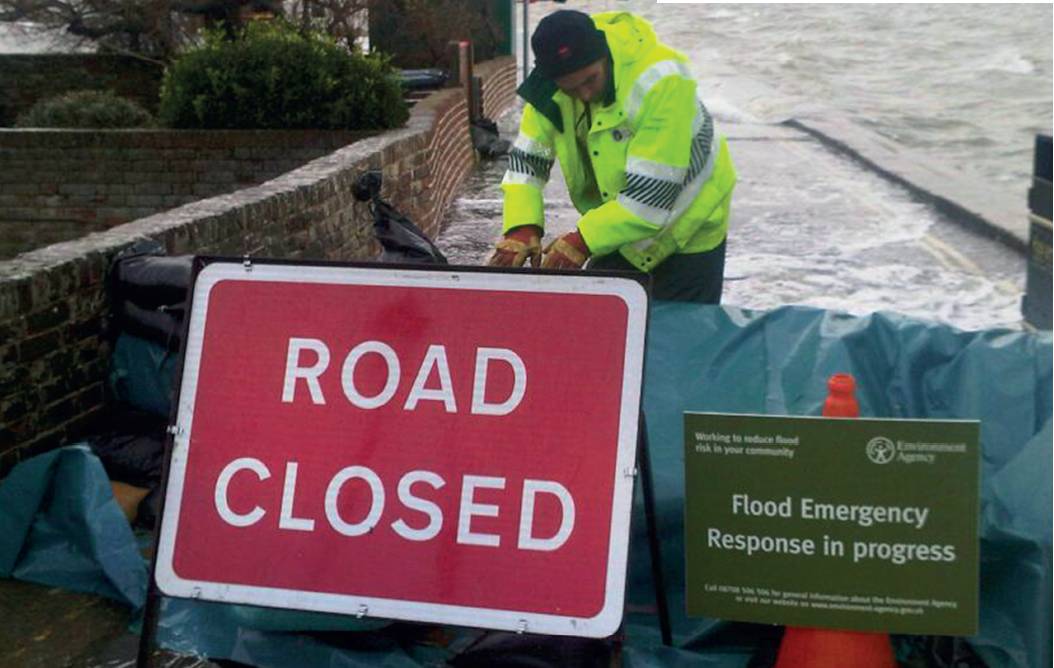The biggest issues of the month explored | Climate resilience
Inside Track
CLIMATE RESILIENCE
Five year climate change resilience plan
Government sets out responsibilities for protecting infrastructure
By Sotiris Kanaris
The government has published its third National Adaptation Programme (NAP3), a five-year plan to boost resilience against climate change risks.
The Department for Environment, Food & Rural Affairs (Defra) published NAP3 in July, outlining government policy for addressing the risks identified for the period between 2023 and 2028.
It is a response to the government’s five-year Climate Change Risk Assessment (CCRA) which was published in January 2022. The policy aims to address climate risks to infrastructure, covered by 13 of the 61 risks and opportunities identified in the CCRA.
 Should adaptation reporting for all infrastructure owners and operators be made mandatory?
Should adaptation reporting for all infrastructure owners and operators be made mandatory?
It aims to bring about improvements in water infrastructure maintenance and boost the resilience of water infrastructure to flooding. There is also an aim to reduce risks to the energy system from more frequent river, surface water and groundwater flooding. The government also plans to improve its understanding of the risk to data infrastructure posed by climate change. An aim to improve the resilience of water infrastructure and the transport network to coastal flooding and erosion is also included.
NAP3 includes commitments to embed an approach to climate resilience in line with the government’s Resilience Framework. The framework published in December 2022 focuses on the UK’s ability to “anticipate, assess, prevent, mitigate, respond to and recover from known, unknown, direct, indirect and emerging risks including those posed by climate change that affect infrastructure and the built environment”.
The government will also request that infrastructure operators provide up-to-date information on the climate risks that affect them and how they are managing them, through climate adaptation reporting under Adaptation Reporting Power (ARP). ARP was introduced under the Climate Change Act 2008. It gives the environment secretary the power to direct infrastructure operators to report on current and projected impacts of climate change on their organisations. Reporting could also include proposals for adapting to climate change and assessments of progress implementing adaptation policies and proposals.
In providing information about climate risks, infrastructure operators will be encouraged to explain how they are collaborating to manage cross-sectoral hazards that affect whole systems.
Reports will be invited from bodies in the energy, water, transport, health, heritage, environment and financial sectors. Reporting will be voluntary, although representatives from the engineering sector have called for it to be made mandatory.
Under NAP3 the government will also use the National Planning Policy Framework and sector-specific National Policy Statements to provide local authorities and central government with guidance on climate risk for new infrastructure proposals.
The government believes this will give developers clarity about how they should tackle climate risk.
For water infrastructure, Defra will drive £2.2bn of investment in water quality and resilient supply through the Plan for Water.
NAP3 sets out government plans for the energy sector as well. The Department for Energy Security and Net Zero and Ofgem will designate those responsible for maintaining energy sector codes and standards with a clear mandate to build climate and weather resilience.
The two bodies will also drive investment in infrastructure resilience through Ofgem’s price control framework, which balances the relationship between investment in networks, financial returns and energy bills.
The Department for Transport (DfT) will develop a transport adaptation strategy to address risks such as surface water flooding on roads and floods that affect railways, outlined in the Climate Change Risk Assessment.
The DfT aims to consult on the strategy by the end of 2023.